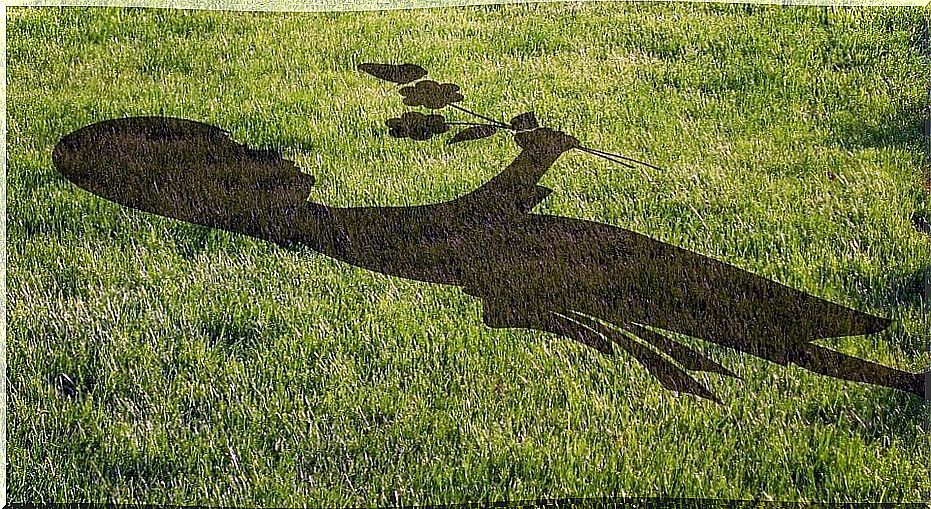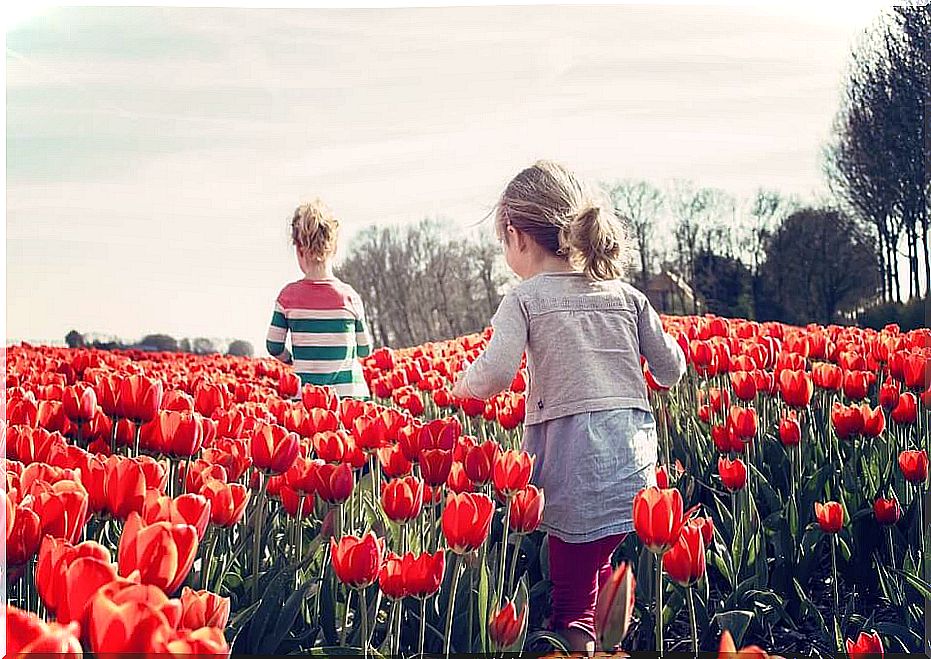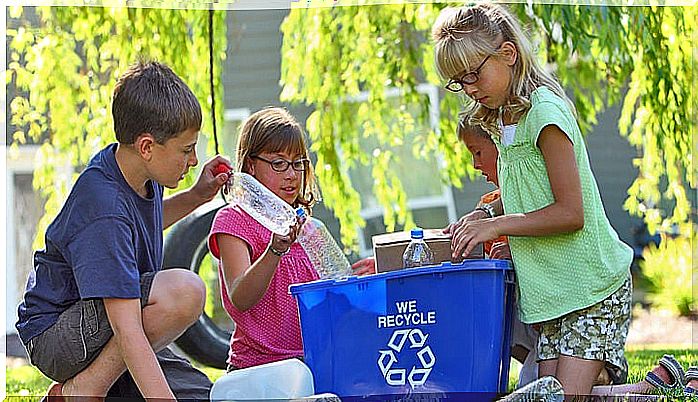What Nature Teaches Your Child

The intelligence of nature is fascinating. She keeps within herself the information necessary to survive and overcome any obstacle that comes her way. We have all seen the beauty, strength and voracity of nature, which has among its virtues the gift of order, patience and perseverance.
Patience is a virtue that few people possess. Its absence is especially noticeable in today’s society, which is developing with an increasingly accelerated speed. Certainly, we are interconnected through the Internet, whose functionality and speed makes us believe that the solution to all our needs is at our fingertips and at the speed of a click.
And although we solve many tangles of our day to day clicking on our phones, tablets and computers, sometimes the use of these devices instead of connecting more, disconnects us.
More and more children are also using one of these devices. In fact, their little hands go spectacularly well with these devices because their speed is only matched by the mind of a child, but what about Mother Nature? How does it work? What is your rhythm? Nature teaches your child hundreds of virtues that are far more instructive than those he can learn from a modern electronic device.
Observing the patience with which nature works is magical. When you see it, you discover that its progress is millimeter but constant. Nature never stops! On the contrary, it opens paths and always overcomes the obstacles that it encounters in its path … you will have already seen how a plant climbs on a wall or even grows on the asphalt; do everything to survive, to grow, to flourish … then, imagine all that your child can achieve if he learns and practices the example that nature sets.
Nature is a paragon of virtues

Consistency is a virtue that nature clearly displays. She knows that it is the most effective method to achieve her goals, after all, if she needed to grow at high speeds, she would do it without limiting herself, however, nature in her infinite wisdom knows that perseverance and patience are key to her growth. and development.
Establishing a bond between your child and nature will be of great benefit to him, since, surely, like all children, he is very detailed and will easily notice, among other of his qualities, the constancy of nature; He only needs you to make him see it, to introduce him to the fascinating world of nature, then he will lose himself in that infinite field of teaching that mother earth provides.
The purity of nature is another of its virtuous aspects. Contemplating her purity helps to understand part of the mysteries that she keeps. At the base of every tree or plant, whatever it may be, even the so-called “weeds”, there is a complex network of rootlets that filter what they need to grow, survive and bear fruit .
In its filtering process, the plant not only takes what it needs to feed itself, it also discards what hurts it and the excess nutrients ; Understanding that process is another important lesson nature teaches your child.
During the exercise of observing nature, it is also convenient to see your body; This other machinery is in charge, with its also complex selection system, of taking the best of all foods; so you can well compare the operation of a plant with the human body, as they are very similar. The food system of human beings takes what it needs to grow, stay healthy, play sports, study …
Respect for nature

Wildlife also has a lot to teach your child. Pick a day and take him to a park where he can observe the patience with which the birds build their nests.
From them she will learn the careful way to select each fiber of dry straw to create what will be her and her partner’s nest, where, later, her chicks will also nest. This experience will allow you to see that a team, even if it is made up of two members, can achieve a lot when they work towards the same goal.
Respect for all species is another lesson children can easily take as they generally love animals.
There is a kind of connection between the two, possibly because children understand each other better: Ask a child what profession he wants to practice when he grows up and he will surely answer that he wants to be a veterinarian. Only a child is curious enough to stoop to observe and detail the ants and the entire social and organized network that they represent in the animal kingdom.
There is no better example of life than that of ants. Based on their observation, you can take the opportunity to talk with your child about issues as important to their development as perseverance and work. These small insects work like few others: always collectively and seeking the common good, two premises that if you keep in your life they will serve and help you a lot.
The fluidity with which nature develops is amazing. It has the capacity to renew itself, it seldom stagnates and what stagnates becomes contaminated and loses its life ; this is also a great teaching. In addition, the reigning harmony in the processes of nature should be admired, as its members show how without articulating words they communicate, they also show that through ancient knowledge each one knows their function in their ecosystem, which operates for the benefit own and others, constituting as an exemplary network of cooperation.
Scientists are increasingly taking nature as a reference for the development of new technologies. Why not do it with our children? In the end nature offers the examples, every time our children want to take a model they can do it of this perfect machinery called nature.









